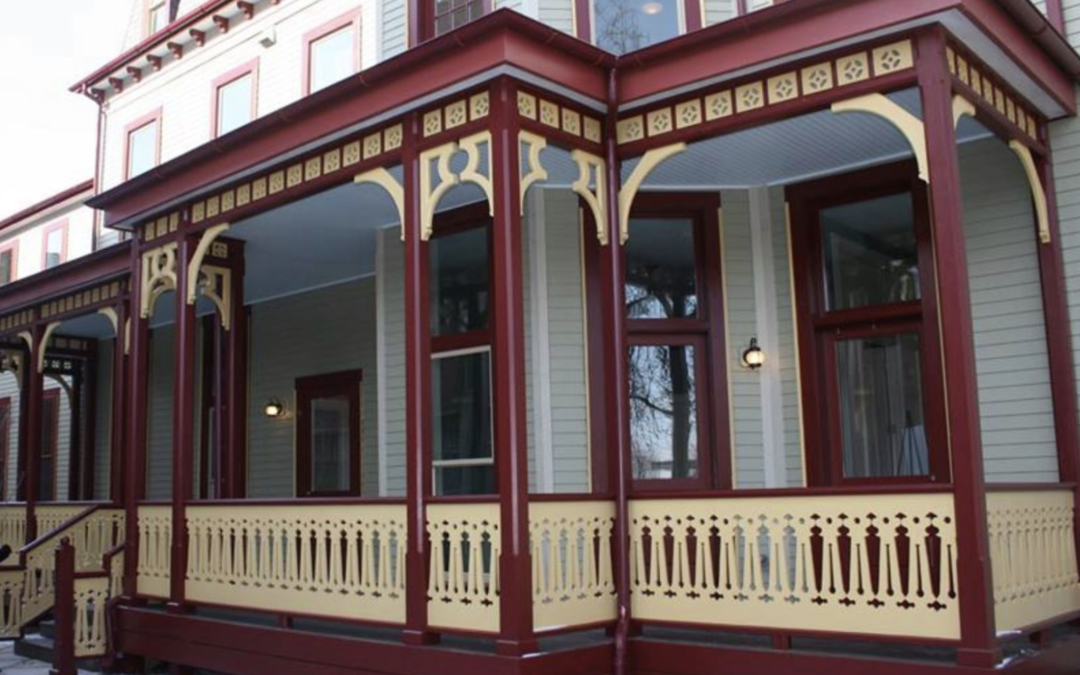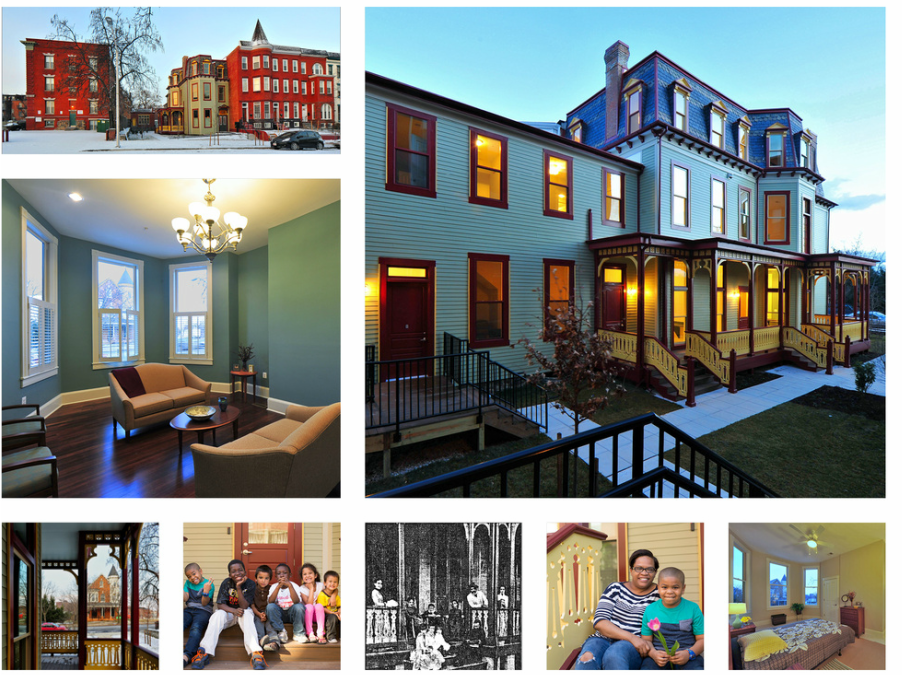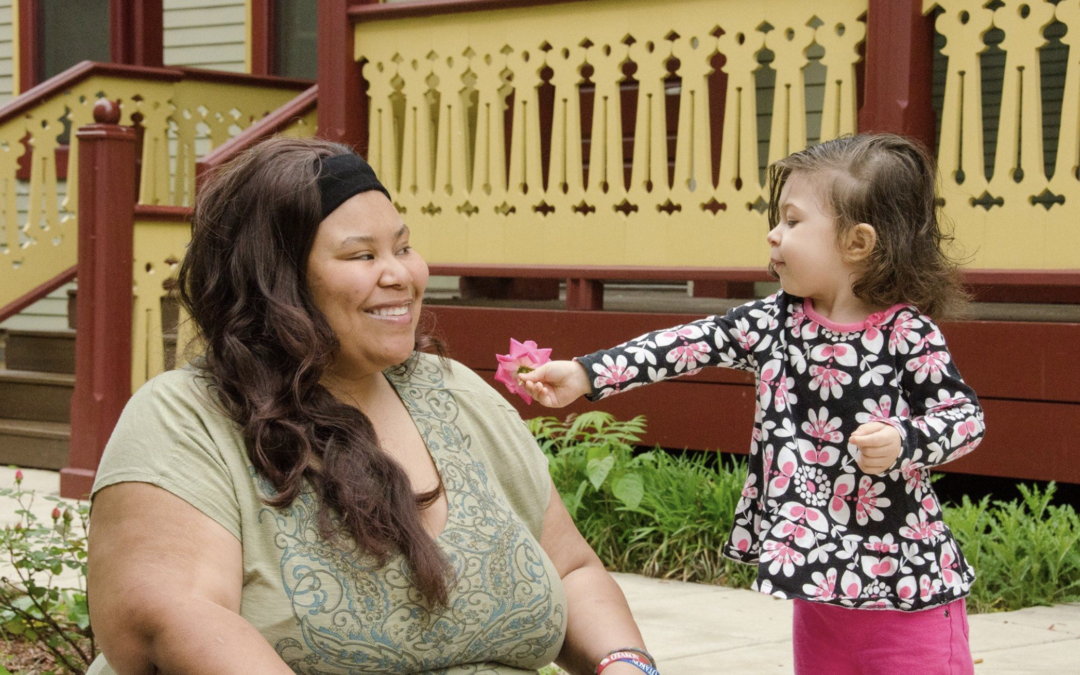
by Admin | Mar 25, 2020 | Uncategorized
The Women’s Housing Coalition is celebrating 40 years of helping to create stability for individuals and families. Our success in serving Baltimore is thanks to the founders, like Jane Harrison who also served as the first Executive Director. Our founders were women who saw a need in our community and pulled their talents together to create a solution. After a personal tragedy, Jane Harrison felt called to do something different with her life, something more “socially conscious,” and she threw her energy into women’s housing. Her passion has led her to become a well-known advocate for supporting women and ending homelessness.
When asked what she thought had contributed to so many women participating in WHC over the years Jane responded, “The backdrop was the energy which emerged as WHC was a fledgling women’s movement gaining momentum in the early 1980s. Issues which were labeled ‘women’s issues’ were coming into being as areas for improvement, and there was a growing articulation among women and women’s groups. The striking issues at the time – which produced a lot of outrage – were domestic violence and homelessness. Until that time, homelessness was seen mostly as an issue of vagrant men. These are the things that brought women together.”
“Advocacy brought the first dedicated group of women together who founded the Women’s Housing Coalition in 1980. The unifying force that kept us together was that each of us was witnessing, in our daily work, growing numbers of women without homes, without any means on which to live, very often in poor health, both physically and emotionally, and frequently at risk for violence and certainly contempt from passersby. Working with then Delegate Anne Perkins, we helped shepherd the very first state funds to establish a women’s shelter, created in the downtown Baltimore YWCA. Thereafter, over the next few years we established and ran three transitional houses for homeless women in west Baltimore and pursued a dream of establishing Maryland’s first Single Room Occupancy. The dream finally came to fruition in the early 90s with the opening of the Calverton on 25th Street in Baltimore.
“I keenly remember when working in one of our early transitional houses an incident that will be forever in my mind. I had invited one of our residents, a former librarian who struggled with mental illness and had become homeless, to testify in Annapolis about her experience of being unsheltered on the streets of Baltimore. She willingly and courageously agreed. To my shock when I came to pick her up, her usually neat appearance was radically transformed – disheveled hair, smudged makeup and clothes askew. When I asked her what had happened, she explained that she felt that she had to look like a homeless woman in order to testify. I would not presume to interpret the multiple tragic and saddening layers of meaning exemplified by this poignant incident. We arrived at an understanding that her everyday appearance was more than fine, and she testified to great effect. I have rarely experienced such a depth of anger and sorrow that our wealthiest of nations countenances the suffering and robbing of dignity that our homeless citizens endure.”
With the framework the founders created, the WHC has been able to grow and expand to serve more people with the support of donors, volunteers, and outstanding leadership. We need your donations more than ever to serve our residents in this uncertain time. You can make a $50 donation and feed an individual for two weeks or a $100 donation and feed a family for two weeks.

by Admin | Feb 11, 2020 | Uncategorized
The historic Linden House was built in 1886 and was the home of David Bachrach and his family for many years. Mr. Bachrach was a prominent commercial and portrait photographer who built the house nearly two decades after he photographed Abraham Lincoln at Gettysburg at the time of his Gettysburg Address. His brother-in-law, Ephraim Keyser, who headed the Maryland Institute College of Art’s Rinehart School of Sculpture, had his sculptor’s studio at the rear of the property, where it remains and has also been handsomely renovated. The Women’s Housing Coalition has renovated the main house and a detached former studio into five affordable apartments.
We, at Women’s Housing Coalition, partnered with Episcopal Housing Corporation to renovate this Reservoir Hill landmark, listed on the National Register of Historic Places. The Linden House allows Women’s Housing Coalition to provide housing and work with five women and children who were homeless who want to take control of their lives and need help to lead stable lives for the rest of their lives. The home has been reconfigured, with four affordable apartments in the main residence and another in the Keyser sculpture studio.
The house was designed by the prolific Baltimore architect George Frederick, who gave us our City Hall and many other landmarks, including St. James the Less Roman Catholic Church in East Baltimore. A large handsome late 1880’s wooden structure, this house is 6,200 square feet, including the backyard art studio. Its sheer size, nearly twice the size of other Baltimore homes in the area, contributed to its list of vexing rehab issues. Normally we build in brick, but the house was built of wood covered with wood siding. After years of sitting abandoned, the wood rot was considerable. “It was in horrible, horrible condition. Nobody knew what to do with it,” said Mark Sissman, director of Healthy Neighborhoods. “There were enough pieces of the original staircase left to duplicate it,” said Daniel McCarthy, executive director of Episcopal Housing, who was a consultant for the restoration. Bits of the interior wood finish survived — in pieces. All were painstakingly copied and reinstated in this thoughtful and well-funded restoration. The Linden House can now serve as a model for restoration, neighborhood stabilization, and effective supportive housing. The renovation was funded by Healthy Neighborhoods, Inc., with the Neighborhood Stabilization Program, two funds under the federal American Reinvestment and Recovery Act, and the France-Merrick Foundation. Through this support and the guidance of Baltimore City’s Commission for Historical & Architectural Preservation, this long-neglected historic home was preserved, such that it awarded the 2014 Baltimore Heritage Renovation and Restoration Award.

by Admin | Jan 24, 2020 | Uncategorized
2019 was a big year for the Women’s Housing Coalition. For the first time in over ten years, we were able to add more units. Expanding from 98 to 108 households has given 25 families and 83 individuals a place to call home.
In partnership with Kaiser Permanente, our residents were able to go to the Reginald F. Lewis Museum of Maryland African-American History & Culture on Martin Luther King Jr. Day. The partnership also provided residents with the opportunity to access tools they will need for career success with professional headshots, a pop-up thrift store, resume/job readiness workshop, and motivational speakers.
Events like this along with our ongoing life skills programming that focuses on mind and body health help ensure that our residents have all of the support and experience they need to create goals and meet them.
Inside the Women’s Housing Coalition we also had some exciting changes to make sure we are meeting the needs of our growing number of residents. We have new staff members, including a part-time Case Manager and an Inspection Coordinator who is bridging the gap between Case Managers and inspections that we must comply with through the City. Our residents often struggle with having the skills to maintain their home, working with their landlords to get repairs completed, or letting strangers into their homes. The Inspection Coordinator is working closely with them and their Case Managers to build trusting relationships that will make this process easier on them and avoid triggering trauma.
You may have noticed that the WHC also received a brand refresh to help us grow awareness for our organization! We designed a new logo and color scheme to freshen up our marketing at DesignFest, which was hosted by The Maryland Institute College of Art (MICA) and sponsored by the T. Rowe Price Foundation.
Our new and improved website launched in June and shares our mission, resident success stories, and makes supporting the WHC easy for our donors.
We look forward to 2020 with high hopes for even more growth as we celebrate our 40th year of helping to end the cycle of homelessness.
We invite you to help us celebrate at our annual event, Windows of Opportunity, on April 1st from 6:30 – 9:30 p.m. at the Reginald F. Lewis Museum.
As we reflect on all we’ve accomplished over the last 40 years, we are hopeful for a future where every person has access to safe, affordable housing.

by Admin | Jan 15, 2020 | Uncategorized
It’s time to celebrate! The Women’s Housing Coalition is commemorating 40 years of providing housing support to individuals and families who have experienced the trauma of homelessness.
For 40 years we have supported our residents as they regain their self-confidence, and acquire the life skills necessary for them to become stably housed and provide a safe and enriched environment for their children to thrive and excel.
It is the generosity of organizations, foundations and individuals like you that enables us to provide housing, case management, and other vital services to the most vulnerable in our communities.
Our 40th Anniversary Gala celebration will take place in the wonderful Reginald F. Lewis Museum on Wednesday, April 1st, 2020, from 6:30 to 9:30 p.m.
We are asking for your support as we take this opportunity to recognize MaryAnn Scully, (President, Howard Bank) for her commitment to ensuring all women have a seat at the table and Carol B. Payne (HUD Baltimore Field Office Director) for her commitment to ensuring there are more and bigger tables for all women to be seated at.
It is only through your help that we are able to change people’s lives by working with our clients to end housing instability.
Thank you for your continued support.

by Admin | Dec 19, 2019 | Uncategorized
The holiday season is a time for being with family and enjoying the magic of Christmas on little one’s faces. For many, the holiday season is the hardest time of the year.
What would you do if you had nowhere to sleep? How do you explain why there is no Santa for your children?
According to the Federal Department of Housing and Urban Development, approximately 2,669 men, women, and children in Baltimore City are homeless on any given night.
This year we are thankful for all of our volunteers and donors who have helped us create stability for 83 individuals and 25 families have a place to call home this holiday season.
“Me, my husband, my two sons, and my grandson were all living in the same home. I knew that if something happened to my husband that we wouldn’t be able to afford rent. He was really sick, and that’s what happened.
I went to a shelter that had a 30-day stay. I ended up staying there for 3 months because they liked my attitude. A lot of girls would come in and their spirits were broken and I had that uplifting thing. I like to make people laugh so I kept them laughing and they kept me around.
I went to stay with my mom, from my mom I went and stayed in my storage unit. I stayed in my storage unit for about a year and a half, maybe two years. I found a social worker who helped me. She was the best; she was only supposed to help me one year but she helped me two years because she liked my attitude. She got me into the Bennett House. Once I got that key in my hand I said ‘nothing is ever gonna be the same’ and it hasn’t.
That was three years ago. I’m ready to get out there and do it on my own. With my husband, I was with him for 32 years, I never had to pay a bill. Once I got here it taught me the responsibility of, you have to pay your rent, you have to buy your own food. I’ve learned how to budget my money…”
“I like the women at the Bennett House. There’s always good ones… Veronica is a gem. When they put her in here they knew what they were doing. She’s like a mentor. She makes sure that you pay your rent every month. She knows that was something hard for me to do, to pay my rent, because I never had to do that before…”
“To me, WHC has been the greatest experience of my life. And I’ve had some good experiences and I’ve had some bad; this is the greatest. It helped me plant my feet and it gave me stability. I’ve grown a lot and I’ve learned a lot.” – Christine
There is a long waitlist for people who housing in programs like the Women’s Housing Coalition. With your help, we can continue to grow and help more people individuals and families have many happy holidays to come.
Make a donation today: https://squareup.com/store/womens-housing-coalition





